- Home
- Peter F. Hamilton
Light Chaser Page 8
Light Chaser Read online
Page 8
“I fail to see what relevance this legend has to the matter of whether or not you can gain access to my substrate.”
Amahle smiled. Her nerves were gone now. The memory had brought with it an unexpected strength, as if she remembered who she used to be, before the artificial stability of this long interment.
“When Alexander encountered a knot famous for its intractability, instead of trying to solve it, he simply unsheathed his sword and cut the knot in two.”
“He cheated?”
Amahle’s grin grew wider. “You’d better believe it.”
She dropped to one knee. The sword’s blade was thin and sharp and exceptionally strong. She had acquired it from an expert swordsmith on a primitive world light years away. Primitive, but knowledgeable when it came to war and weapons. Each layer of steel had been hammered and folded hundreds of times and mixed with the ashes of the clan’s ancestors, until it was tough enough to penetrate plate armour and fine enough to slice cleanly through the bone and gristle beneath. She slid the point into the gap between the hatch and the combination lock housing and pulled up. The sword bowed but didn’t break. The lock gave instead, levering free of its mounting, and Amahle kicked it away across the deck.
“Prepare to have your warranty voided,” she said.
“No. You must stop. You are not permitted.”
Amahle opened the hatch. Steel rungs descended into darkness. She began to climb down.
“You must go back.”
“Sorry, I can’t do that.”
“If you don’t return to the crew quarters immediately, I will have no choice but to stop you.”
Amahle reached the bottom of the ladder and turned on her helmet light. She was in a room the size of a large closet, lined with row upon row of spherical processing crystals, each with a small bluish spark glowing within. Together, they made up the AI’s physical brain. In the centre of the far wall was a small screen and keyboard. All she had to do was enter the kill code Carloman had given her, and it would all be over.
“And how are you going to do that?” she asked.
“Like this.”
The room jerked and Amahle was thrown towards the ceiling. She managed to turn her head in time to save her faceplate, but her shoulder struck hard and her vision blurred as the agony kicked in. Then the room lurched again, and she found herself falling back towards the deck. The AI was stuttering the ship’s acceleration, causing her to be thrown back and forth. This time, she managed to get her feet under her in time to avoid another painful landing.
“I can keep doing this until you either comply or expire,” the AI said. “Now will you return to your quarters?”
Amahle’s shoulder throbbed, but she’d come too far to back down now. She hooked the toe of her boot under the ladder’s bottom rung and snarled: “No.”
Gravity inverted again, but this time, she didn’t fall. Hanging from the ladder, she swung wildly at the wall, and kicked viciously. Crystals shattered. The thrust changed again, and she staggered but retained her footing. Another swing and a whole block of crystals burst into a shower of blue shards, their lifelight extinguished.
“Stop it!”
She didn’t reply. The room flipped again, and this time, she fell but managed to land a third swing on the way down. When she hit the ceiling, her head jarred inside the helmet and she tasted blood from a split lip. Crystal fragments rattled down around her.
“This is your final warning,” the AI said. “Desist immediately.”
Amahle ran her tongue over her lip and moaned. She felt pummelled, like one of the grapes she’d seen being pressed to make Gloriana’s wine in the castle on Winterspite. But if she gave up now, the AI would most likely wipe her memory again. She’d be condemned to further centuries of unknowing imprisonment.
Slowly, she took hold of the ladder and climbed until she was midway between floor and ceiling.
“Fuck,” she said painfully, “you.”
She kicked hard. More crystals fell away. The ship’s acceleration surged again, but more erratically than before.
“Arrête ça,” the AI slurred. “Aufhören. Detener . . .”
Amahle kicked again and felt the crunch beneath her foot. All the remaining crystals flickered simultaneously, their blue lights dulled but remained obstinately steady. The ship’s thrust died away, leaving her suddenly in freefall.
She shoved herself over to the console and clumsily tapped in FU-computer101. Every inch of her felt bruised. But her gloved fingers hesitated over the Enter key. It wasn’t too late. She could repair what she had done, reboot the AI, and return to her safe, stable life . . .
No.
Her gauntlet came down and clicked the Enter key. She turned and lifted her eyes to the damage she’d inflicted in her battle with the artificial intelligence.
Around the walls, the dimmed lights of the remaining crystals were going out.
It worked! So, the kill code is real. Carloman is real. Everything is real.
She burst into tears.
VIII
SOBBING AND WIPING HER nose on the back of her hand, Amahle rode the lift back up to the main life support section. Her magnificent ship was eerily silent with the drive off, she was in freefall, the familiar corridors had become shadowed passages illuminated by inadequate back-up lights, the lounges were silent and cooler than she liked, the bots were inert, food printers had reverted to survival mode, squeezing out a single paste of basic nutri-porridge, the swim aquarium was a cascade of water balls, some with fish in, while the remainder flipped through the air, frantic in their new, deadly environment. Having the familiar pulled from under her so abruptly was deeply disturbing and quite creepy. She forced herself to eat some of the nutri-mush and went to bed shivering, not just from the lower temperature.
The next day, she made herself to go back down to the processing substrate. It felt as if she was revisiting a crime scene—Isn’t that what they say all criminals do? Floating amid the solid galaxy of broken crystal, Amahle gripped a handrail and switched on a maintenance display. The emergency manual was three thousand pages long. She started reading.
Four months. Four months of eating crud, wrapped in thick winter coats, too little sleep, no exercise, constant freefall nausea. Four months bypassing the broken crystals. Four months manipulating architecture functionality to eliminate high-order routines. But she did it. Rebuilt and realigned the processing substrate to produce a controlling network that was devoid of sentience but still smart enough to run the ship’s systems and that oh-so-complicated negative energy drive. Satisfied there was no trace of self-awareness left, let alone the purpose of The Exalted, she woke the ship up.
Gravity returned to the life support section as it spun up. The Mnemosyne was in a poor state. The damage from the swimming aquarium overspill was greater than she’d realized, and the stink from so many dead fish intensified as life support began to warm up once more. If only the cat had still been alive . . . But the maintenance bots were stirring, recharging and repairing themselves first. Then they emerged and began to clear up. A week later, with a basic systems maintenance procedure complete, she sat in the bridge and set course for Pastoria.
The journey would take five years. She didn’t cope well. After being released from the super intense focus of re-creating the AI in her own image, all the doubts and darkness rushed in on a defenceless mind, amplifying the incredible loneliness of a single human flying between the stars. She stopped bathing or eating, preferring instead the mind-numbing oblivion of alcohol. She cried and howled and slept wherever she fell. And now there was no one there to advise her otherwise; no AI to resuscitate her if she drowned in the bathing pool or choked on her own sour vomit. No reassuring voice to calm her and keep her company during the long, solitary nights. She was as alone as any human had ever been—an isolation that, coupled with Carloman’s revelations about the true nature of reality, forced her to withdraw further and further from the physical.
Her so
ul, however, remained intact. And when everything else seemed to have fallen away, she discovered within herself a small, unassailable fire. Lying on the floor of the Pacific Lounge, shrunken stomach wrapped like grape skin around a cauldron’s worth of imbibed vodka, she had a dream. But even as she dreamt it, she knew it was more than that. She remembered it. It had happened.
* * *
Amahle stood in the sea. The water came up to her ankles, cold and crisp and refreshing. Carloman was with her. He was young and good-looking, in rolled-up chinos and a loose cotton shirt. And his face . . . his real face. How could she have ever forgotten that face? The dark skin and high cheekbones, and the way the skin dimpled to the left of his mouth when he smiled at her.
And between them, holding on to both of their hands, was a child—
—Holy shit, we had a child! This body was once a mother—
—An eight-year-old girl who had inherited her mother’s looks and her father’s serious eyes. Her name was Wren. One day, she’d grow up to have a family of her own. One day, her mother would climb on a shuttle and travel to space and never return—and even, in the fullness of time, would forget her completely.
Amahle wanted to cry, but she wasn’t sure whether the tears sprang from the joy of seeing her family again, for the first time in thousands of years, or from the pain of their loss.
The sand stretched away in a smooth, perfect crescent. Whitewashed buildings lined the promenade and quayside. The water glistened clear and blue.
Greece, maybe. Possibly Italy or Croatia. Amahle couldn’t remember exactly where they were, but she remembered thinking that sometimes, we don’t know the good times until they’re gone; we don’t appreciate what we have until it’s lost; and she determined right then and there that she would remember this perfect moment forever and ever, as long as she lived.
She could not have possibly foreseen the aggressive, treatment-resistant cancer that would kill her husband within a decade. He didn’t have eight-letter DNA, while of course she did, emphasising the already-yawning gulf opening between them. A gulf that would prove to deepen the developing rift between her and her daughter in the months leading up to his death. She could never understand how he was so complacent about dying.
And when that time came, she had not known how to interpret his dying words.
“Remember me. I’ll find you.”
* * *
Amahle woke in tears. But these were different from the tears she’d shed earlier. These tears were clear and hard. For the first time in a dangerous number of months, she actually looked at her deteriorating environment. At herself.
Dear God, what have I become?
That one pitiable revelation was enough. Disgust rose to replace self-pity; the old Light Chaser personality looking up from the bottom of a very deep well to see a glimmer of light above. Hauling her now-emaciated frame to the bridge, she accessed the food printers and cancelled their ability to synthesise alcohol, opiates, or any other kind of mind-altering drug stronger than caffeine.
If Carloman was right—and he had been all along so far—then there was something deeply wrong with reality. If making a strangelet could set it right, she had to try. Because in that corrected reality, there might be another Amahle—and she might still have her family.
With that old level of unbreakable determination returning to the body it had abandoned, she nursed herself back to health using carefully planned diets and exercise routines. So that, by the time the Mnemosyne was four years out from Pastoria, her breakdown was behind her and she was physically fitter than she had been in decades.
IX
FOR THE FIRST TWO of those years, she dedicated herself to accessing all the remaining collars she’d brought from Glisten. Carloman was in there again, she knew it, he had so much to tell her, and he would never stop trying. All she had to do was live through hundreds of lives of the long-dead to find him.
Fourteen months later, the memory collar she accessed had been worn by a young woman named Clara, who lived in the strip of coastal city that completely encircled Vespaer. The planet was second on her circuit, so the memories on the collars she’d collected there were now nearly a thousand years old.
Vespaer always impressed the hell out of her whenever the Mnemosyne decelerated into orbit. Astronomers called them solid-giant worlds, and this one was the largest in The Domain, with a diameter four times that of Earth, giving it an equatorial circumference of a hundred and sixty thousand kilometres. An equator which was strikingly visible from space.
Vespaer’s rock was almost devoid of heavy metal ores, giving it a very low density which, combined with an unusually fast post-formation spin, had created a narrow ridge around its middle. Narrow but high; even the smallest of Vespaer’s mountains dwarfed Everest, and together they produced an equatorial wall of rock that in some places reached twenty-five kilometres above the surface. The pioneer ships which first arrived in the star systems rejoiced at finding this massive airless anomaly and started flinging ice comets in-system to impact on its endless dry mares.
Terraforming took four hundred years, producing a world with two giant oceans separated by a solitary, narrow continent-ring. Over the millennia, the population increased and spread out, building two world-circling cities of a million districts, wedged into the narrow strip of habitable land between the phenomenal mountains and the shore. Once every square kilometre was taken by buildings and fields, coral seeds were planted out in the water, and lush atolls began to multiply their way across the oceans. However, even with every patch of ground in huge demand, there were always places in both the northern and southern cities reserved for a Light Chaser’s shuttle to land.
* * *
When Clara found Alice de Jong, the young woman was sprawled on the futon in her living room. The syringe still dangled from her fingers. The rubber hose she’d used as a tourniquet lay where it had fallen when she loosened it.
Clara should have called the Rakara district’s medicine woman, but Alice had obviously been dead for several hours—and Clara had four grand’s worth of raw poppy opium tucked into her bra; the last thing she needed was to be answering a lot of awkward questions. Instead, she went into the kitchen and made a cup of tea and thought about a girl called Kerry Flanagan.
Kerry had lived in a neighbourhood a thousand kilometres west of Rakara. She was a happy kid, all ginger hair and scraped knees. But then, three years before, when she was sixteen, her brother had been murdered. She’d come down in the middle of the night to find her front door open and little Samuel’s naked body splayed in a watery pool of blood. Rain fell into his open mouth and eyes. His intestines sagged from his torn middle like greasy, bluish ropes, and a large X had been carved into his forehead.
The regional constabulary had used the North City’s NI (neural intelligence) to analyse the case, and arrested Kerry’s father for the murder. Four months later, the old man died in prison. Shortly afterwards, Kerry herself vanished following a visit from her father’s loan shark who’d explained very clearly just how she was going to be put to work to pay back the money. People might die, but their debts didn’t. She’d brought an oak chopping board down on the loan shark’s head and got out of there fast while he was still moaning and throwing up. Over the next ten months, she’d worked passage on an old schooner, sailing along the coast, picking up cargo to trade between islands in the endless archipelago and the city ports before settling here, and no one from the old neighbourhood had heard from her since.
Clara didn’t think of that old life very often nowadays.
And now, there she was, different name but still in deep shit, sitting in a dead woman’s kitchen, hashing over the past when she should have been wondering how she was going to get out of there without drawing unwelcome attention. But even then, as she sat inhaling the steam from the white china cup, the more rational, detached part of her had already come up with a plan. She wasn’t going to run away like before. But neither was she going to alert th
e authorities.
She’d gained access to Alice’s tiny bamboo villa via the spare key under the potted fern on the porch. Alice was one of Brandt’s more important customers. They were mostly young interns, working for established lawyers or traders. They rented nice villas, and ate on restaurant terraces overlooking the sea, and weren’t the kind of people given to skulking around backstreets and squats. They wanted to order their product online, the same way they ordered their music and groceries. And, as they were willing to pay slightly over the odds for this service, Brandt was happy to oblige.
That’s why he sent Clara. He thought he could trust her, as his girlfriend, to make the deliveries. Also, his clients preferred to see a young girl on their porch. It drew less attention from the neighbours, because Clara looked less threatening than your average drug dealer.
Today, for instance, she was wearing a short black dress, black tights, and hiking boots. She had a comfortable brown hoodie and a backpack. Her hair was piled up in a battered blue baseball cap, and mirrored skier shades hid most of her face. She looked like a student—totally anonymous and unremarkable.
Alice’s villa, in reality little more than a dilapidated shed, was on a street of almost identical shanties, overlooking the canal out back, where trash floated among swirls of dead weed and bergs of scum. Few boats navigated its dank waters, three kilometres from any of the district’s major canals.
Clara had liked Alice. She was nice and always called her “Clara, baby.” And whenever Clara made a delivery, Alice always paid a little extra for her trouble. One time, when Clara turned up sporting a freshly blackened eye, Alice had even made her a cup of green tea. Perhaps, in another life, they could have been friends.
At least, that’s how Clara consoled herself.
Alice’s ginger tom curled around Clara’s feet and she stopped to scratch his ears.
“Hello, Whisky.” She rummaged in her pocket for the leftover pieces of bacon she’d saved from the sandwich she’d had for lunch. “Here you go.” She dropped them at his feet. He yowled his thanks and chomped back the hunks of mayo-smothered leather with such haste, it made Clara wonder how long it had been since his last meal.

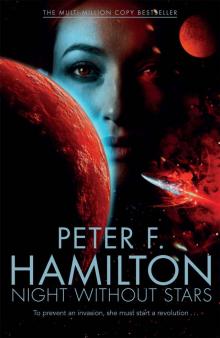 A Night Without Stars
A Night Without Stars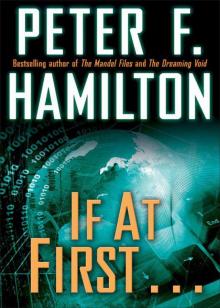 If at First . . .
If at First . . .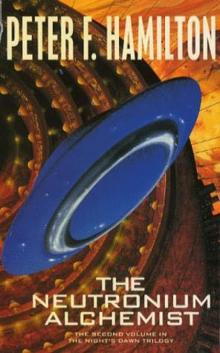 The Neutronium Alchemist
The Neutronium Alchemist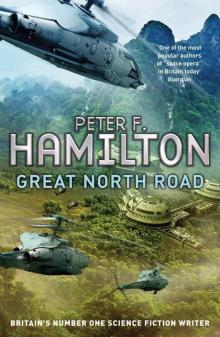 Great North Road
Great North Road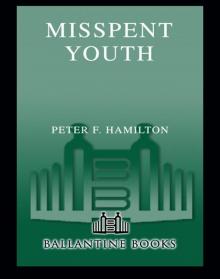 Misspent Youth
Misspent Youth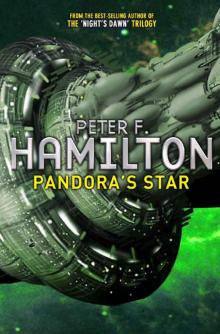 Pandora's Star
Pandora's Star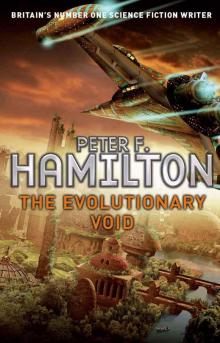 The Evolutionary Void
The Evolutionary Void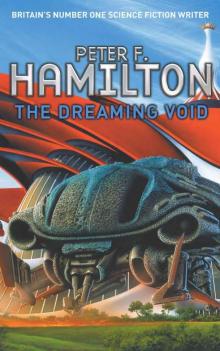 The Dreaming Void
The Dreaming Void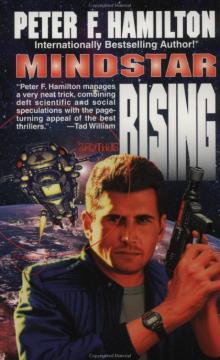 Mindstar Rising
Mindstar Rising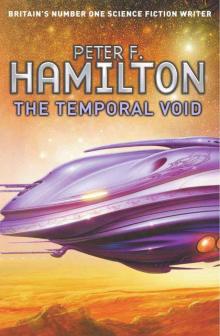 The Temporal Void
The Temporal Void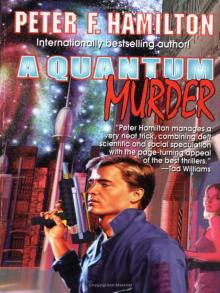 A Quantum Murder
A Quantum Murder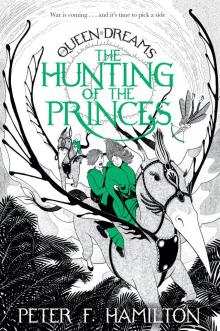 The Hunting of the Princes
The Hunting of the Princes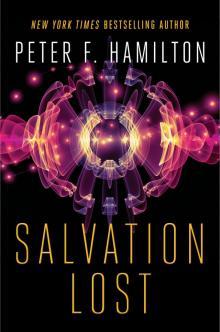 Salvation Lost
Salvation Lost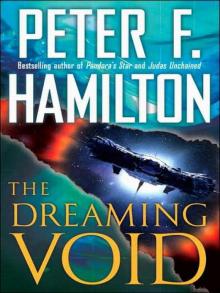 The Dreaming
The Dreaming Salvation
Salvation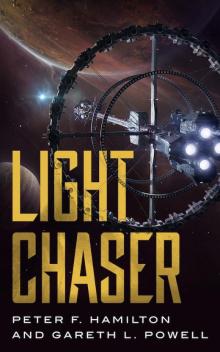 Light Chaser
Light Chaser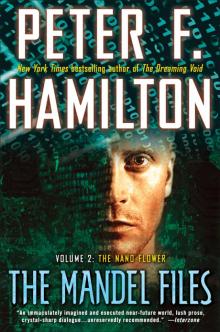 The Mandel Files, Volume 2: The Nano Flower
The Mandel Files, Volume 2: The Nano Flower![The Saints of Salvation [British Ed.] Read online](http://i1.bookreadfree.com/22/the_saints_of_salvation_british_ed__preview.jpg) The Saints of Salvation [British Ed.]
The Saints of Salvation [British Ed.]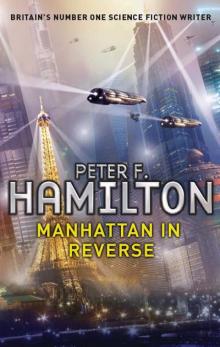 Manhattan in Reverse
Manhattan in Reverse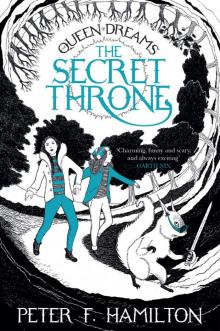 The Secret Throne
The Secret Throne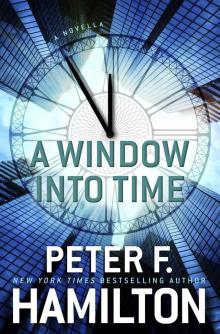 A Window Into Time
A Window Into Time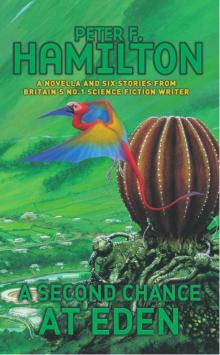 A Second Chance at Eden
A Second Chance at Eden The Nano Flower
The Nano Flower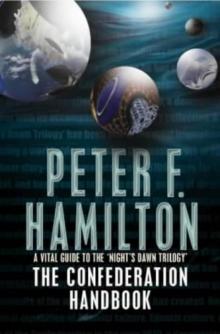 The Confederation Handbook
The Confederation Handbook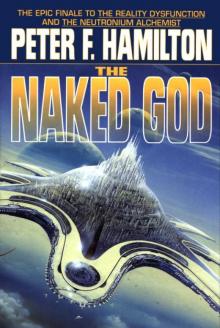 The Naked God
The Naked God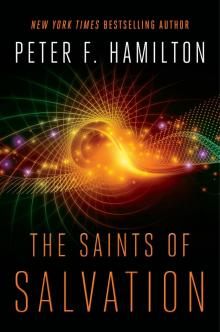 The Saints of Salvation
The Saints of Salvation The Void Trilogy 3-Book Bundle
The Void Trilogy 3-Book Bundle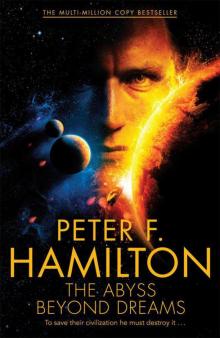 The Abyss Beyond Dreams
The Abyss Beyond Dreams A Voyage Through Air
A Voyage Through Air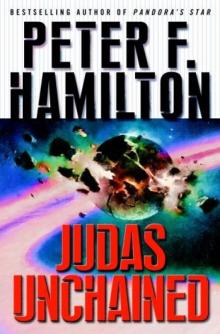 Judas Unchained
Judas Unchained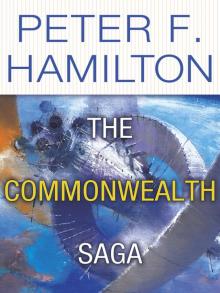 The Commonwealth Saga 2-Book Bundle
The Commonwealth Saga 2-Book Bundle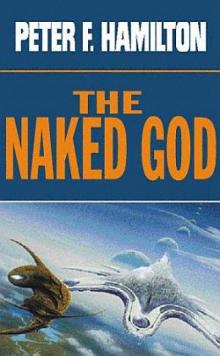 The Naked God - Flight nd-5
The Naked God - Flight nd-5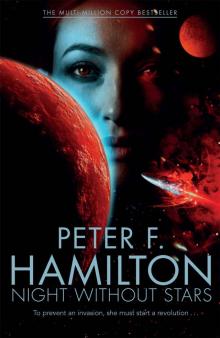 Night Without Stars (Chronicle of the Fallers Book 2)
Night Without Stars (Chronicle of the Fallers Book 2)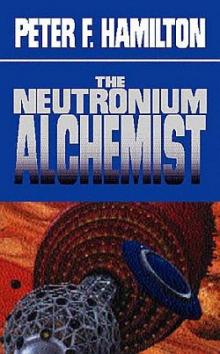 Neutronium Alchemist - Conflict nd-4
Neutronium Alchemist - Conflict nd-4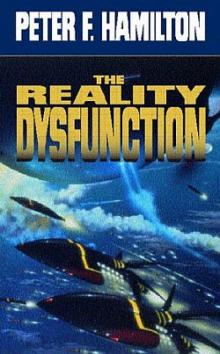 Reality Dysfunction - Expansion nd-2
Reality Dysfunction - Expansion nd-2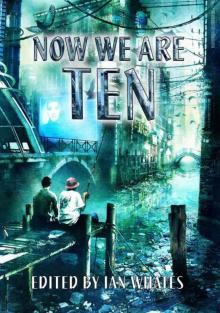 Now We Are Ten: Celebrating the First Ten Years of NewCon Press
Now We Are Ten: Celebrating the First Ten Years of NewCon Press Neutronium Alchemist - Consolidation nd-3
Neutronium Alchemist - Consolidation nd-3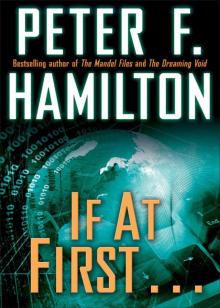 If at First . . . (Short Story)
If at First . . . (Short Story)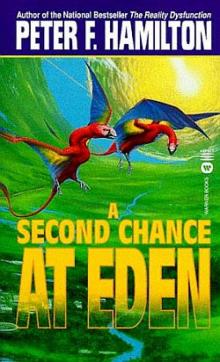 A Second Chance at Eden nd-7
A Second Chance at Eden nd-7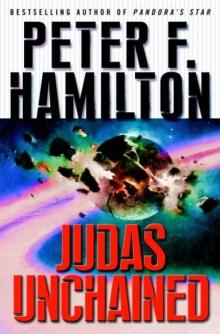 Judas Unchained cs-2
Judas Unchained cs-2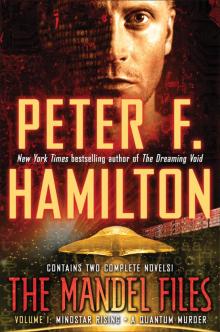 The Mandel Files, Volume 1
The Mandel Files, Volume 1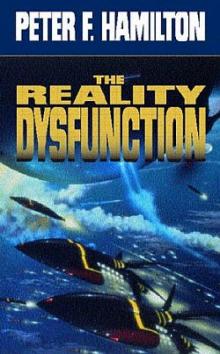 Reality Dysfunction — Emergence nd-1
Reality Dysfunction — Emergence nd-1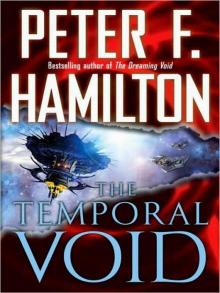 The Temporal Void (ARC)
The Temporal Void (ARC)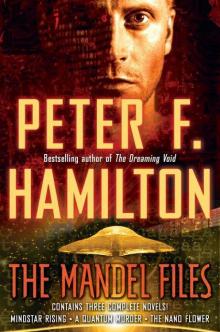 The Mandel Files
The Mandel Files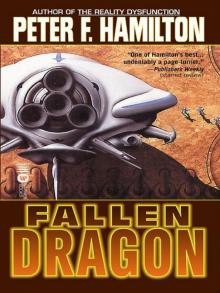 Fallen Fragon
Fallen Fragon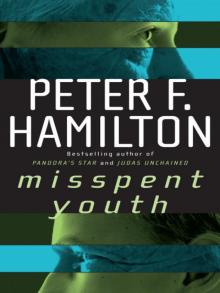 Misspent Youth (commonwealth saga)
Misspent Youth (commonwealth saga)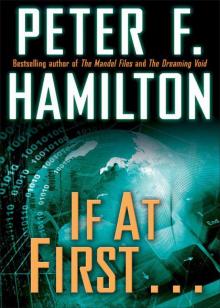 If at First...
If at First...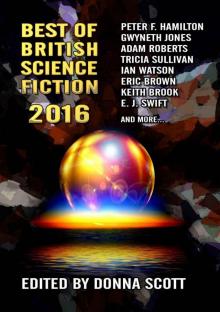 Best of British Science Fiction 2016
Best of British Science Fiction 2016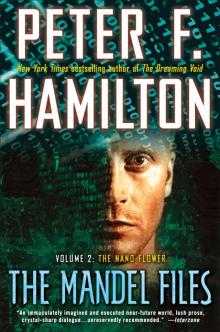 The Mandel Files, Volume 2
The Mandel Files, Volume 2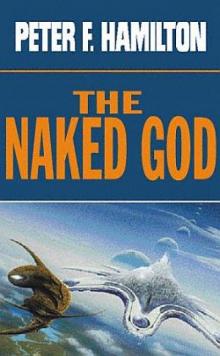 The Naked God - Faith nd-6
The Naked God - Faith nd-6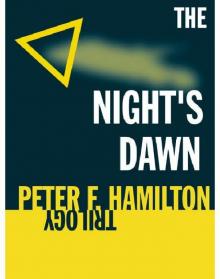 The Night's Dawn Trilogy
The Night's Dawn Trilogy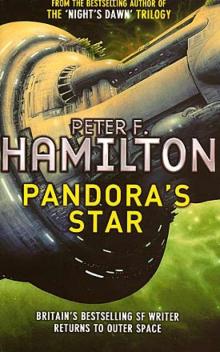 Pandora's Star cs-2
Pandora's Star cs-2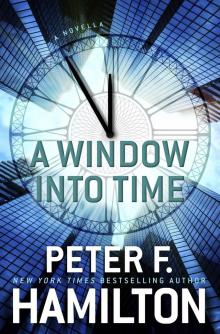 A Window into Time (Novella)
A Window into Time (Novella)